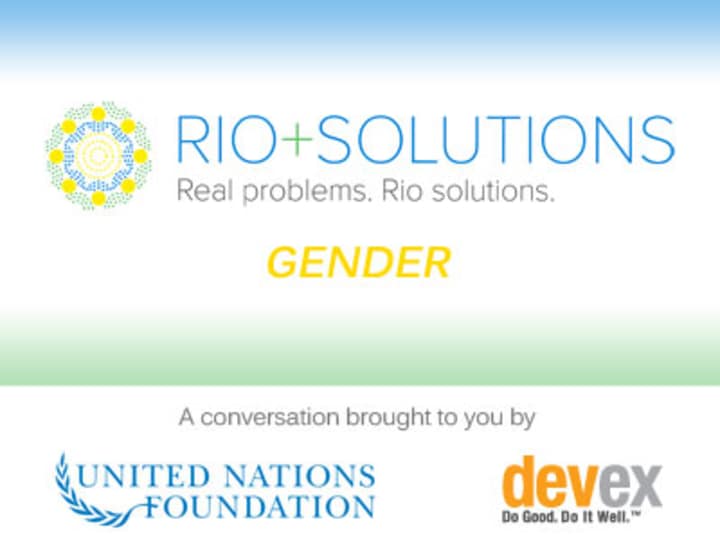
We can see unsustainable development everywhere in the world around us. Climate change, environmental degradation, the fact that one in four people lives in poverty — these phenomena happen because we do not yet have development that places equal emphasis on economic growth, environmental sustainability and social equity.
Unsustainable development affects women in many ways. Women in developing countries make up 43 percent of agricultural workers, but can’t get equal access to land and credit, for example. The Food and Agriculture Organization estimates that giving women equal access to fertilizers, seeds, tools and other agriculture support would result in 100-150 million fewer hungry people.
Clean energy is vital for both improving human well-being and curbing climate change. Yet without it, millions of women primarily in rural areas still cook over smoky, polluting stoves. Two million people die each year from respiratory ailments as a result; 85 percent are women and children. At the same time, in urban areas, almost a quarter of people lack piped water in their homes, placing a disproportionate burden on women and girls.
One part of the sustainable development dialogue in Rio needs to recognize and actively address issues like these. Sustainable development should reduce women’s poverty and lower the harmful impact on health and the environment.
Another part of the discussion, however, must focus women’s major contributions to solutions. Twenty years ago, at the U.N. Conference on the Environment and Development in Rio, U.N. member states unanimously agreed that: “Women have a vital role in environmental management and development. Their full participation is therefore essential to achieve sustainable development.”
U.N. Women will be championing four measures to uphold and deepen this commitment at the upcoming Rio+20 meeting.
First, as a platform for continued action, we will call on governments to reaffirm women’s empowerment and gender equality as vital for sustainable development.
Second, we will urge for measures to enhance women’s leadership and full participation in decision-making in society, politics and the economy.
Third, we will advocate for women’s full inclusion in the economy, to ensure they can contribute to and benefit from opportunities provided by a sustainable economy. This includes ending violence and discrimination against women, and removing barriers for women’s ownership to land and access to credit.
Finally, we will press for agreement that every person should have access to essential public services, including education, health, water and sanitation, energy and social protection.
Through its country programs around the world, U.N. Women empowers women in sustainable development. The organization has helped increase women’s land ownership rights in Morocco, and women’s participation in agricultural cooperatives in Rwanda. It assisted in making women key partners in disaster management in Thailand and Vietnam.
To ensure that grass-roots women have a voice in Rio+20, U.N. Women supported an online survey of women around the world; findings will be widely disseminated at the meeting. A number of women’s advocates will participate in the conference, including at a Women’s Leaders Forum on June 19 in Rio hosted by U.N. Women. A Women Leaders’ Summit on the Future Women Want on June 21 will convene women heads of state and government to issue a call for action.
Women want sustainable development. They want a world free from poverty and discrimination, with equal access to opportunities and leadership, and with wise stewardship of natural resources to meet the needs of current and future generations. Rio+20 is a chance to move towards claiming this future that women want.
Tell us what you think! Comment below or tweet to @devex with #RioPlusSolutions, and catch up on other Rio+Solutions content here or on Facebook.




